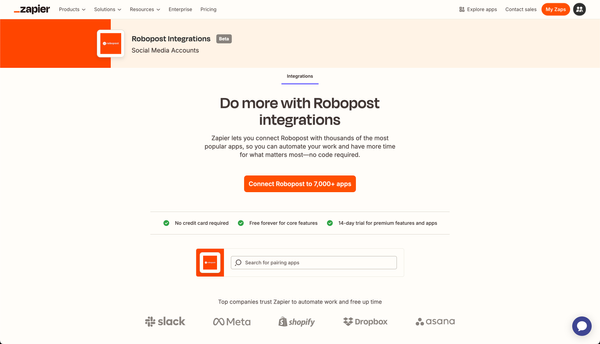The Future of Video Marketing on Social Media: Trends and Predictions
Explore key trends in video marketing for social media in 2024, including AI, short-form content, and influencer strategies.

Key Takeaways
- Short videos like Instagram Reels and TikTok will keep growing, grabbing attention and boosting brand visibility.
- AI and personalization will change video marketing by creating customized content that fits users’ preferences.
- Live streaming and real-time engagement will become more common, helping brands connect authentically and strengthen community bonds.
- New technologies like 5G will improve video quality, offering smoother, more immersive experiences on social media.
Evolving Video Content Strategies
Short-Form Video Surge
The rise of short videos has had a big impact on digital marketing, creating new ways for brands to engage with audiences and tell their stories. Video has always been popular on social media, and platforms like Instagram Reels, YouTube Shorts, and TikTok are making it even more important. These platforms give brands a chance to be creative and connect with people in a more personal way.
Marketers are seeing strong results from short videos, and 30% of those who haven't used them yet plan to start. This shows that more businesses are realizing how effective short videos are at grabbing attention and raising brand awareness.
To boost conversions, businesses are adding things like clickable links, call-to-action buttons, and email sign-up forms to their videos. This helps turn viewers into customers and improves the overall experience.
Live Streaming and Real-Time Engagement
Live streaming is growing quickly, and businesses are realizing its potential for engaging with audiences in real-time. Live events, especially webinars, are becoming an important part of video marketing.
Here’s a breakdown of the types of live events businesses are hosting:
- Company updates
- Product updates
- Branded events
- Educational lectures
- Training sessions
- How-tos and tutorials
Technological Advancements in Video Marketing
Artificial Intelligence and Personalization
The use of Artificial Intelligence (AI) in video marketing is changing how brands connect with people on social media. AI-powered tools now allow for personalization like never before, adjusting content based on individual user preferences and behaviors. This results in more engaging and effective marketing campaigns.
- AI analyzes user data to predict what content people will like.
- Chatbots offer real-time, personalized customer service.
- Real-time data allows for quick changes to content.
Big Data plays a big role in this trend. By analyzing large amounts of data, marketers can understand their audience in detail, creating highly targeted and relevant videos. This approach boosts engagement and increases the chances of users making a purchase since the content is more aligned with their interests.
The Rise of 5G and Its Impact on Video Quality
With 5G, problems like slow loading and low video quality are becoming less of an issue, allowing marketers to share videos in ultra-high-definition.
- Full HD (1080p) is still the standard for most video uploads, with more 4K videos being shared too.
- There’s been a big increase in vertical HD videos (1080x1920), showing that more people prefer watching videos in this format.
- Fewer 720p videos are being uploaded, meaning viewers now expect better-quality content.
Businesses are also working on improving how videos play. They’re customizing video players to match their brand and removing distractions like ads, making the experience smoother and more engaging for viewers.
Optimizing Video Content for Search and Discoverability
Voice Search and Video SEO
As more people use voice-activated devices, it's becoming important to make video content easy to find through voice searches. This means adjusting to how people naturally speak and using longer, conversational phrases. It helps brands reach people who use voice commands to look for information, products, or services.
- Figure out what people want when they use voice search
- Use casual, conversational language in video descriptions
- Add longer, natural-sounding keywords to your video content
Since the digital world is moving toward video, marketers need to make sure their content shows up in voice search results. This requires SEO practices and understanding how voice searches are different from regular text searches.
Algorithm-Friendly Content Creation
Making content that works well with platform algorithms is key to getting noticed and engaging your audience in social media. To create the best videos, focus on two things: using SEO strategies to fit your platform's algorithm and making videos that offer value and grab attention.
More creators are using AI to make video production easier. However, it’s important to use these tools carefully to avoid losing your brand’s unique voice or producing too much low-quality, AI-made content.
As social media algorithms change, so should content strategies. It's not just about making more content, but smarter content that connects with both the algorithms and your audience.
Future Predictions for Video Marketing on Social Media
Predictive Trends in Consumer Behavior
Understanding how consumers act is crucial for successful video marketing on social media. Businesses that stay ahead of trends can outshine their competition. For example, people now prefer real, authentic content over overly polished videos, pushing brands to make more relatable content.
- Consumers are looking for personalized videos that match their own tastes and interests.
- More people want interactive videos that let them shop directly from the video.
- The need for quick results is making short, powerful videos that get the point across fast more popular.
The Role of Virtual Reality in Social Video
Looking ahead, Virtual Reality (VR) is set to change social media video marketing in a big way. This technology isn’t just a gimmick anymore—it’s becoming an important part of the social video world. VR helps brands create highly engaging and interactive experiences, making videos more than just something to watch.
Using VR in social media will likely boost user engagement by offering a more exciting and unforgettable way to interact with content. Some ways VR might be used in social video marketing include:
- Product Demonstrations: Letting customers explore products in a virtual setting.
- Virtual Events: Holding events in VR to reach people worldwide without needing a physical location.
- Brand Storytelling: Creating immersive stories that connect with viewers emotionally.
The growth of VR in social video marketing isn’t just about new tech; it’s about creating deeper social interactions. As mentioned in "7 Social Media Video Marketing Trends You Should Follow in 2024," VR is changing how brands stand out and connect with audiences in a busy digital world.
Sustainability and Ethical Marketing in Video Content
Looking ahead, sustainability and ethical marketing are becoming key focuses in video marketing on social media. Businesses now see sustainability as more than just a trend—it’s a lasting commitment that affects every part of their work. This shift is happening because consumers want companies to be open and responsible.
Key points to note:
- Sustainability is driving business growth, influencing profits and market share.
- It’s crucial for managing relationships with stakeholders.
- There’s a move from short-term marketing tactics to long-term sustainable strategies.
Incorporating sustainability into video marketing will not only appeal to socially conscious consumers but also help brands stand out in a crowded online space.
Conclusion
As we navigate the changing world of social media marketing, it’s clear that video content will remain very important. The insights and trends discussed in this article highlight the need to make video marketing a key part of digital strategies. From the popularity of short videos to the growth of personalized and interactive content, brands need to innovate and adapt to stay relevant and engage their audiences. Using AI and data analytics in video marketing shows the move towards more focused and meaningful interactions. I t’s clear that those who embrace these trends, prioritize authenticity, and build strong communities will succeed in the ever-changing landscape of social media marketing.
